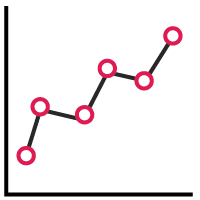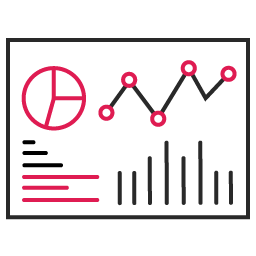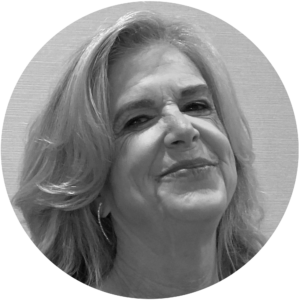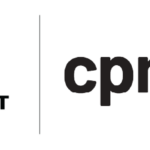The Mission Founded in 1982 to serve urban and rural communities in its home state…
Case Study
SAFe® Organizational Change — Achieving 70% Predictability at an International Lifestyle and Beauty Pioneer
Company Details
Industry: Cosmetics manufacturing and retail
Company Size: 62,000 employees
Location: New York City (USA), with facilities worldwide
Products: Cosmetics, Beauty, and Lifestyle
Cprime Services:
Executive Summary
Faced with information silos between its international offices and a sprawling collection of over 350 unstandardized, underperforming, and difficult-to-manage brand and regional ecommerce websites, this major luxury cosmetics manufacturer turned to Cprime to align its international offices and improve its online sales performance.

The Client
This Cprime client is an internationally recognized global cosmetics and beauty manufacturer. Founded over 70 years ago, the company is notable for its transformation of the industry, especially in how they market accessible cosmetics with luxury appeal.
Today, the beauty product manufacturer is globally ubiquitous—it is currently the home of over 30 instantly recognizable brands synonymous with quality and affordable extravagance.
The company’s success has translated into a public valuation of over 90 billion USD with annual sales revenues of nearly $18 billion from business operations in over 150 countries.
Challenge: Aligning International E-commerce Websites Across Multiple Brands, Regions, and Cultures
Known for its traditional brick-and-mortar sales success, the company has also seen significant results because of its increased focus on online retail and e-commerce channels. But, despite doubling online revenue during the COVID-19 pandemic, the beauty brand was leaving money on the table, especially during the critical holiday season that represents most of the cosmetics and lifestyle industry’s annual sales.
Complexity of Scale

“It is the most complicated company I’ve come across,” explains Jennifer Vasi, Cprime Agile Coach and Certified Scaled Agile Framework® Program Consultant (SPC), and Release Train Engineer. “Its online, brand, and global and regional aspects all have to come together. From a scaling perspective, that is incredibly advanced. The company has over 300 different websites—think 30+ brands, each with 10+ regions. Each website has a different brand experience and each checkout section follows specific regional requirements.”
The Costs of Inconsistency
Poor user experience was causing shopping cart abandonments and driving customers to competitors with more stable, streamlined, user-friendly ecommerce portals.
“They were behind the curve,” says Denise Joseph, Agile Coach and Certified Scaled Agile Framework® Program Consultant (SPCT). “When site performance dipped, consumers would simply head over to another online vendor for a better shopping experience.”
Another pain point was that the levels of technical maturity in the organization varied widely—while some sites were updated with modern development technologies, others ran slow and deeply complex legacy code.
“The sites for newer brands were usually very advanced and on the most current development platforms. Other, more established brands were running code up to a decade old,” says Bridget O’Brien, Cprime Agile Coach and SPC.
A Global Disconnect
The next issue was the disconnect between the regional and corporate teams with product placement, promotional efforts, and site feature development. They often failed to leverage valuable regional knowledge. In terms of feature development, the different localities and international teams were working at cross purposes, duplicating costly development efforts instead of coordinating to develop new components the company could reuse across all locations. Despite local advice, management was also investing in initiatives unsuitable to specific regions.
“The company needed to eliminate its autonomous websites, build a modern, universal ecommerce platform, and establish processes for effective inter-regional communications,” says Liza Ridgway, Cprime’s Head of North America Sales. “They needed to eliminate redundancy, errors, and duplicated effort.”
“The client’s primary goal was prioritization—they wanted to create a very focused roadmap that included modernizing the platform,” adds O’Brien. “They wanted to get the entire organization moving in the same direction.”
Solution: Partnering with Cprime for Incremental Change

“Rather than trying to boil the ocean, they recognized they needed somebody to guide them incrementally through this complex transformation,” says Vasi. “Cprime had helped them before and we were familiar with the organization’s people and culture.”
Improving Portfolios, Empowering Teams, and Aligning Objectives
Operating at the portfolio and team levels, the Cprime consultants approached the manufacturers’ requirements using the same methodologies they were engaged to promote.
“At the portfolio level we began with a basic transformation to empower management to recognize value streams and select and group project teams,” says Joseph. “We led the transformation using the Scaled Agile Framework (SAFe®), eventually adopting a more supportive role and offering coaching to support the company’s new ways of working and help management align around its objectives and the key results it sought.”
As a part of this process, the Cprime coaches helped the company visualize the data they had in Jira, establish their development programs, and effectively plan using the Atlassian toolset to achieve their goal of becoming more predictable. Throughout the engagement, the Cprime team adapted its approach to meet the manufacturer’s requirements.
“Our team size fluctuated. Our coaching team numbered around five people, but we often took on player-coaches in specific roles to fill in the gaps,” says O’Brien. “When they needed release train engineers, for example, someone from Cprime would take on those responsibilities and advise and help until their teams had the knowledge for independent success.”
“The company needed to eliminate its autonomous websites, build a modern, universal ecommerce platform, and establish processes for effective inter-regional communications.” – Liza Ridgway, Cprime’s Head of North America Sales
Prioritizing Communication to Achieve Desired Business Results
At the team level, Cprime followed a similar path, prioritizing removing the communication silos between the brand and its regional partners to develop a standardized ecommerce platform based on mutually established goals. Just as significantly, Cprime set out to open up a dialogue between the head office and the regional teams to ensure their local expertise would start being considered.
“We spent a lot of time in goals coaching and story writing with the brand and regional teams, working with them to stop their goal posts from shifting,” recalls Vasi. “It wasn’t about affecting what they were delivering. It was about streamlining how they worked and collaborated so they could become effective product teams with a view of the big picture. We focused on teaching them how to deliver value rather than simply checking off unrelated and potentially conflicting boxes in their internal ticket system.”
Results: 70% Predictability with Structured PI Planning and Improved Information Flow for All

“With release trains and PI planning sessions in full swing, the teams aligned. Each knew what the others were working on and how their own deliverables affected the work product of their colleagues,” says Nicole Bruno, Cprime Agile Coach, Release Train Engineer, and SPC. “They had a better, more collaborative working relationship—they were no longer just throwing requests over the fence.”
Change at the Organizational Level
In a year and a half, Cprime trained hundreds of people throughout the organization, in the US, Europe, Hong Kong, APAC, and the rest of Asia. Overall, the Cprime team facilitated 13 independently held release trains, each with a minimum of 50 team members.
“As a result of the training, for three days every quarter, across the company and the world, 650 people would sit down and establish a roadmap,” says Joseph. “The entire company—management, and everyone down the line—knew exactly what to deliver for the next three months.”
Enhanced Planning and Efficiency
Besides providing the regional teams with a voice and averting expensive culturally unsuccessful initiatives, the roadmap eliminated costly duplicate work by providing the teams with the information they needed to create shared services the company could reuse in every locale. As a result of the planning, predictability rose to 70% despite turbulent pre- and post-COVID-19 market conditions.
While no transformation is ever complete, Cprime has helped place the beauty and cosmetics manufacturer on the path to future success by empowering its management and teams with the information required to plan more effectively.
“We got them to a place where they understood their deliverables, and could measure how their teams were doing. Management had clear metrics to base decisions on,” concludes Joseph. “Leadership gained confidence in what the teams were planning. The teams themselves justified that confidence by learning how to establish realistic workloads they could take on without over-committing and under-delivering.”
Want to see the same results for your organization? Explore our flexible Scaled Agility solutions.
SAFe and Scaled Agile Framework are registered trademarks of Scaled Agile, Inc.
Want to share with a colleague? Download the PDFFeatured Team Members

Nicole Bruno
Agile Coach, Release Train Engineer, and SPC
Nicole Bruno is a Senior Consultant and Customer Success Lead with almost a decade of experience driving agile transformation. Her expertise lies in her exceptional interpersonal skills and finding unique ways to solve problems. Nicole has a passion for delivering positive and impactful change and thrives when she’s learning and growing with her coworkers and clients.

Denise Joseph
Agile Coach and SPCT
Denise has over 15 years of experience in software development as a technical writer, ScrumMaster, Product Owner, and Agile coach for both Federal and commercial customers. She is a Certified DevOps and Scaled Agile (SAFe) trainer with a focus on Agile coaching. She is best known as a coach who believes in building communities through mentoring teams.

Bridget O'Brien
Cprime Agile Coach and SPC
Bridget is an Agile Coach that helps organizations deliver more value by transforming teams & programs into highly productive and collaborative groups leveraging various Agile frameworks best suited to the clients needs. Bridget has 7 years of experience serving as a scrum master, coaching teams and programs, leading PI Planning sessions, and building key stakeholder relationships. She also has successfully set up Lean Portfolio Management at ELC across multiple groups & regions.

Liza Ridgway
Head of North America Sales
Liza Ridgway has been at Cprime for more than a decade, leading some of the largest transformations. She is the recipient of one of the first Computer Science degrees and her talent is in helping clients optimize productivity with new technology from the first portable computers to wireless devices to leading Enterprise 2.0 and Collaboration Software, to Agile, SSLM and Global SAFe transformations. Liza brings together Cprime's SSLM partners, products, and practitioners to design and deliver unique solutions to fit each client's needs. Using her technical background and business experience, she has spent 35+ years driving leading edge productivity.

Jennifer Vasi
Agile Coach, Release Train Engineer, and SPC
Jennifer is a passionate Agilist who helps teams become high-performing. She has over 25 years of experience in IT as a software engineer, solution architect, and manager of enterprise platforms such as data integration and GIS. She is a SAFe Certified Release Train Engineer (RTE) and Certified SAFe Practice Consultant (SPC). Jennifer has also worked in several industries, including high tech, insurance, and ecommerce.

